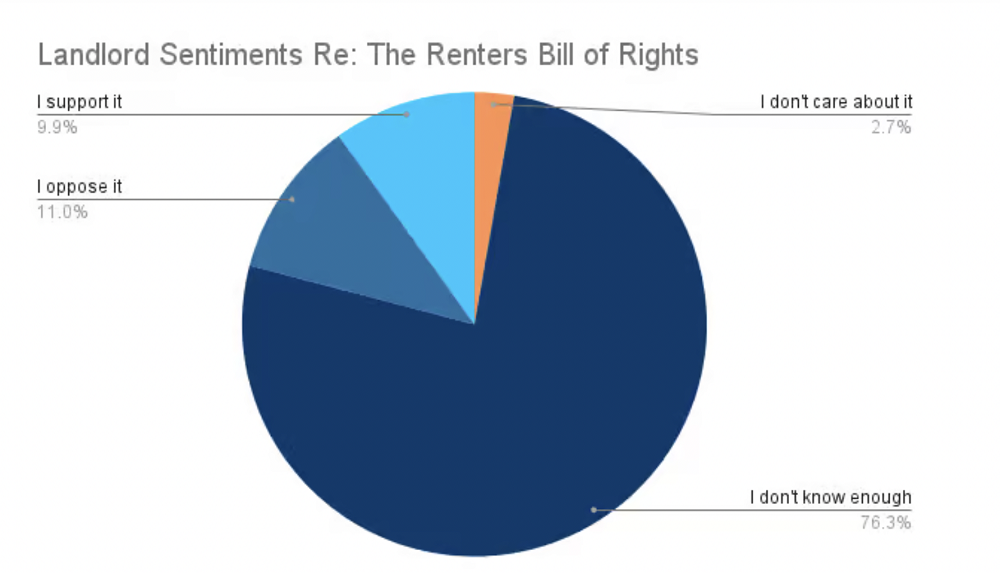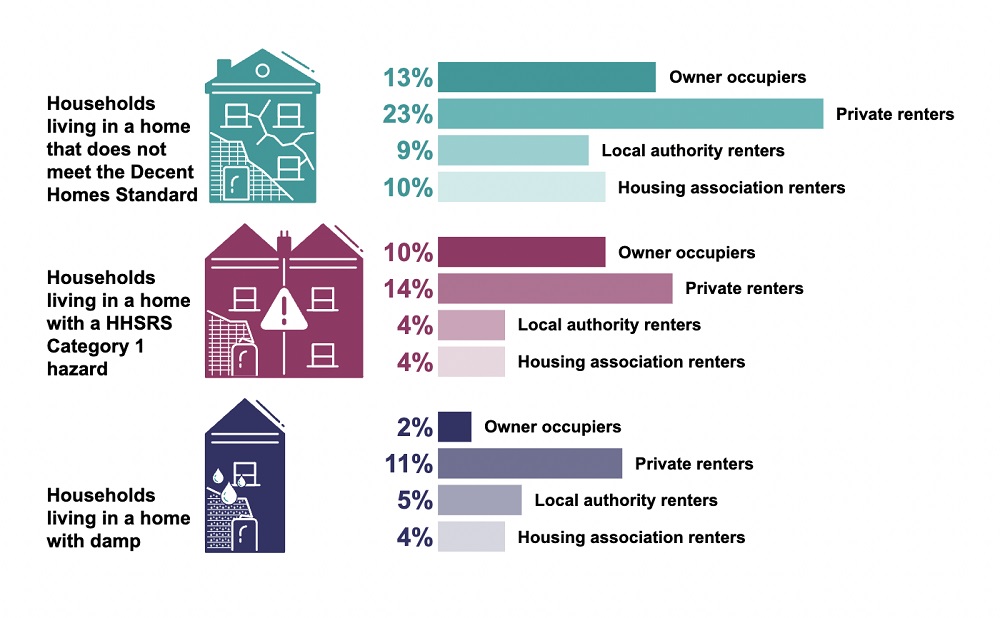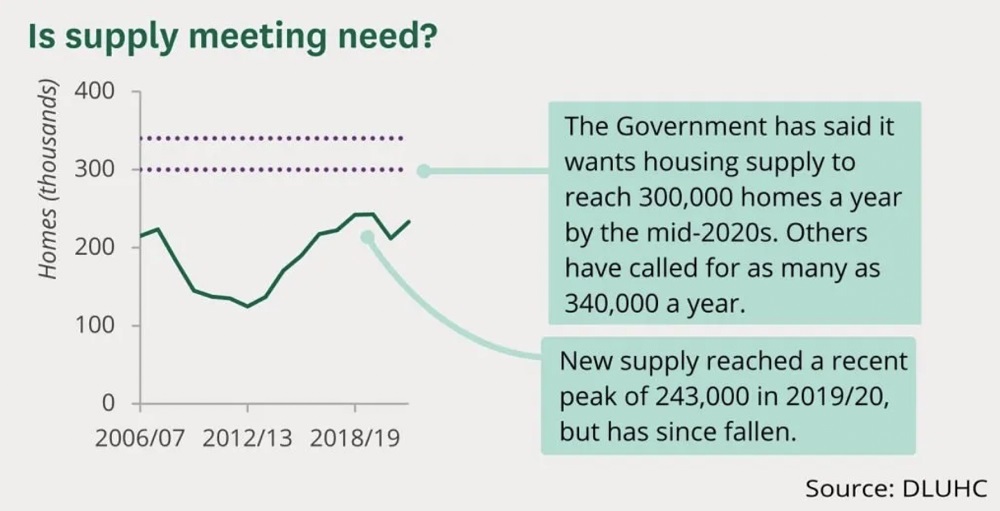2024 Renters Rights Bill: What Does It Mean For Landlords?

The 2024 Renters Rights Bill aims to improve protections for tenants, and landlords will face big changes. But what does this mean for landlords, and how will it affect them?
Keep reading to find out more.
Key Takeaways
- Landlords can't use Section 21 for 'no fault evictions' under the 2024 Renters Rights Bill.
- Due to the expansion of the Decent Homes Standard, they must now ensure their properties meet higher safety and welfare standards.
- Landlords must register with a Private Rented Sector Database before renting out properties.
- The bill introduces new grounds for possession, benefiting tenants and landlords by clarifying legitimate reasons for reclaiming property.
- Facing unlawful eviction or harassment could result in fines of up to £7,000 for landlords.
2024 Renters Rights Bill Summary
The 2024 Renters Rights Bill introduces sweeping changes aimed at strengthening tenant protections. It redefines the landscape between landlords and tenants, focusing on fairness and stability in housing.
Abolition of Section 21 'no fault evictions'
Under the new 2024 Renters Rights Bill, landlords will no longer use Section 21 for 'no fault evictions'. This move represents a significant shift, favouring tenants' security over landlords’ flexibility.
Labour has committed to enforcing this change promptly. Now, landlords must rely on Section 8 to reclaim their property.
This abolition means that tenants can feel more stable in their homes without fear of sudden eviction. It emphasizes reasonable grounds for repossession rather than convenience for the landlord.
The transition aims to create fairer conditions within the rental sector, reflecting Labour's dedication to tenant rights.

Introduction of new grounds for possession
The 2024 Renters Rights Bill introduces several new grounds for possession that landlords must be cognisant of. These changes purpose to safeguard property owners' ability to reclaim their properties in legitimate instances while sheltering tenants from unjust evictions.
For instance, should a landlord intend to sell the property or return to live in it, they can now achieve that more seamless with these defined conditions in effect. This modification serves to equalise the conditions between renters' stability and landlords' adaptability.
This legislation denotes a marked progression to more equitable renting practices, guaranteeing both parties have unambiguous guidelines.
Estimations indicate a rise in possession claims as landlords and tenants align to these fresh rules. The procedure in court might decelerate at first, resulting in increased costs for everyone involved.
It's essential for those with rental properties to comprehend these changes completely to handle upcoming challenges effectively and uphold compliant operations within the UK's progressive rental landscape.
Changes to fixed term and assured shorthold tenancies
Landlords must get ready for big changes to fixed term and assured shorthold tenancies under the 2024 Renters Rights Bill. This new rule means the end of fixed term agreements as we know them.
Now, all tenancies will transition into periodic ones. This marks a significant shift in how rental agreements work in the UK, making it crucial for both landlords and tenants to understand what's coming.
This adjustment aims to offer more security to renters by removing the uncertainty that comes with fixed-term contracts ending abruptly. It ensures that unless there are legitimate grounds for eviction set out by law, tenants can stay in their homes without fearing sudden notices to leave.
For landlords, this change underscores the importance of familiarising themselves with these updated regulations to ensure they comply fully and maintain positive relations with their tenants.
Increased protections against eviction for tenants in arrears
The 2024 Renters Rights Bill introduces significant amendments to safeguard tenants in arrears. Now, landlords must issue a four-month warning prior to eviction on certain grounds.
This adjustment provides tenants with an expanded window to clear their dues and obtain financial counsel or support. Prior to this legislation, abbreviated notices could push renters into deeper complications without sufficient resolution time.
Tenants now also receive a 12-month secured period at the commencement of tenancies, shielding them from instant eviction threats if they are in arrears early on. This safeguard promotes stability during the essential initial stage of renting.
These steps strengthen tenant rights while encouraging landlords to adopt more equitable approaches in managing arrears, signifying a progression in the direction of more balanced renters' rights in the UK.

Source: TurboTenant.com
New Responsibilities for Landlords
Landlords must now embrace a host of new duties, from signing up for databases to ensuring their properties meet higher standards. Keep reading to discover how these changes will reshape the rental landscape.
Requirement to register with a Private Rented Sector Database
Under the 2024 Renters Rights Bill, all landlords are required to register with a Private Rented Sector (PRS) Database before they can advertise their properties. This indicates a considerable move in the direction of further controlled rental practices in the UK.
The primary objective is to promote transparency and guarantee that all rented accommodations conform to established standards. Up until this law, there was no single register for private landlords across the region.
This registration process acts as an essential initial step in adhering to the new bill's stipulations. Landlords are expected to provide in-depth information about themselves and their properties.
Only upon finalising this registration are they legally permitted to rent out their properties. In continuation, we will explore the compulsory membership for landlords in a Landlord Redress Scheme.
Mandatory membership in a Landlord Redress Scheme
Landlords now face a new rule under the 2024 Renters Rights Bill. They must join a Landlord Redress Scheme. This scheme helps sort out issues between landlords and tenants. If landlords ignore this rule, they could get hit with penalties.
Joining a Landlord Redress Scheme isn't just good practice; it's the law for landlords from 2024.
The government designed this to protect renters better. It ensures that if problems arise, there's a fair system to fix them. Landlords should sign up as soon as possible to avoid fines and stay on the right side of the law.
Enhanced duties under Decent Homes Standard
The 2024 Renters Rights Bill brings significant changes, expanding the Decent Homes Standard to cover the Private Rented Sector (PRS). This shift means more responsibilities for landlords.
They must ensure their properties meet higher safety, welfare, and repair standards. Specifically, Awaab's Law will make landlords responsible for fixing structural issues that lead to problems like mould.
Ensuring rental homes are safe and habitable becomes a primary duty. Landlords now have to proactively deal with any defects that could harm tenants' health or put them at risk. The aim is clear: elevate living conditions across all rental properties in the UK, benefiting both renters and communities alike.
Prohibition of rental discrimination (e.g., 'No DSS' policies)
Moving forward, the 2024 Renters Rights Bill introduces a crucial update that directly impacts rental discrimination. This legislation outlaws any refusal by landlords to consider tenants simply because they receive benefits.
Known colloquially as 'No DSS' policies, these discriminatory practices have prevented many from securing housing in the past.
Landlords must now adjust their tenant selection processes, ensuring they do not reject applications based on applicants receiving benefits or having children and pets. This change aims to create a more inclusive rental market, reflecting the bill's commitment to fairness and equality for all renters.

Source: Gov.uk
Impacts on Tenancy Agreements
The 2024 Renters Rights Bill will greatly modify the tenancy agreements' framework, demanding a solid understanding of the new terms from both landlords and tenants. These modifications include a shift in the direction of periodic tenancies and specify how frequently and by how much rents can rise, with certain regulations for pet ownership.
Transition to periodic tenancies
Property owners should be aware of the transition to recurring leases under the 2024 Renters Rights Bill. This action will cease predetermined time rentals, offering a more adaptable accommodation situation for occupants.
As leases become automatically recurring post their primary duration, proprietors need to modify their administrative practices and arrangements accordingly.
This modification endeavours to grant occupants better protection and stability without the confinement of lengthy agreements. Property owners would benefit from revising their leasing documentation to mirror this new framework.
Transparent dialogue with existing and potential occupants regarding how these transitions impact them is crucial.
Restrictions on rent increases
The 2024 Renters Rights Bill introduces new rules for rent increases that landlords must follow. Landlords can now raise rents just once a year, a big change from the past when there were no strict limits.
If they want to increase the rent, they have to use Section 13 notices. This makes everything clear and standardised.
These restrictions mean that renters and landlords must understand the cap on in-tenancy rent increases. It brings more predictability for tenants planning their finances. For landlords, it ensures any increase follows a set method, making disputes less likely.
Clauses regarding renting with pets
Progressing past constraints on rent escalations, the 2024 Renters Rights Bill introduces specific clauses to simplify life for pet owners. This fresh legislation restricts landlords from denying tenants with pets.
It signifies a notable advancement in eradicating bias pet-owning renters encounter within the property market. Landlords will now need to accept pets unless they possess a valid reason to reject them.
This transformation reflects the 2024 Renters Rights Bill's wider ambition to cultivate impartiality in rental agreements. By confronting pet ownership head-on, it ensures that possessing a pet will no longer prove an obstacle to securing a home.
For landlords, this implies modifying tenancy contracts to sensibly accommodate pets, complying with the bill's aspiration of a comprehensive and unbiased housing market.

Source: Parliament.uk Library
Financial Implications for Landlords
Landlords face potential financial penalties for not meeting the new standards set by the 2024 Renters Rights Bill, urging them to stay well-informed and compliant.
Penalties for unlawful eviction or harassment
Landlords who unlawfully evict tenants or harass them now face steep fines. Under the 2024 Renters Rights Bill, they could be hit with penalties up to £7,000. This is part of the bill's initiative to provide added security to tenants and ensure their rights are protected.
These measures deter landlords from engaging in illegal practices and also highlight the government's commitment to improving living conditions for renters across the UK.
Harassment of a tenant or forcing them out without following legal procedures is unacceptable. The new laws present a transparent message that such behaviour results in substantial financial consequences.
With the implementation of these laws, tenants can feel secure in their homes, with the assurance of strict penalties for those infringing upon their rights. Next, let us examine the financial penalties for non-compliance with new regulations.
Financial penalties for non-compliance with new regulations
Facing financial penalties has become a real concern for landlords who fail to comply with the new regulations set by the 2024 Renters Rights Bill. Non-compliance can result in hefty fines, particularly for those ignoring their duties under the Landlord Ombudsman scheme and other legislative requirements.
These measures aim to enhance tenant protections and ensure landlords maintain high standards across the Private Rented Sector.
Fines vary depending on the severity of the breach. For instance, illegal evictions or failing to meet Decent Homes Standards could lead to significant financial consequences. The government has put these regulations in place not just as a deterrent but also to foster a fair and safe housing market for renters across the UK.
The enforcement of these rules underscores the importance of understanding one's obligations as a landlord, leading into how updated tenancy agreements will reflect these new laws.
Enforcement and Legal Changes
The 2024 Renters Rights Bill introduces significant enforcement and legal changes that empower authorities with new investigatory powers to ensure landlords meet their obligations, promoting fairness and protection in the rental market.
Keep reading to understand how these updates affect you as a landlord or tenant.
Role of the Private Rented Sector Landlord Ombudsman
The introduction of a landlord Ombudsman marks a significant change in the 2024 Renters Rights Bill. Landlords now must join this compulsory Ombudsman scheme. This new role aims to settle disputes between landlords and tenants more efficiently.
It acts as an impartial entity, ensuring fairness in resolutions. This will help improve relations in the private rented sector by providing a trusted platform for complaints and conflicts.
A fairer future for renting is on the horizon with the landlord Ombudsman at its core.
Landlords need to understand how this impacts their operations. Joining the scheme is not just mandatory; it's beneficial. It signals to prospective tenants that you are committed to high standards in rental practices.
Now, let’s explore what new investigatory powers enforcement authorities will have under this bill.
New investigatory powers of enforcement authorities
Enforcement authorities are gaining new powers to investigate under the 2024 Renters Rights Bill. This means they can dig deeper into complaints and enforce standards more effectively.
Landlords not meeting their obligations face tougher scrutiny. These powers help ensure homes meet the Decent Homes Standard, providing safer living conditions for tenants.
Authorities now have the tools to act against landlords who break the rules. They can inspect properties, gather evidence, and impose penalties more efficiently. This change aims to level the playing field in the private rental sector, making fairness and quality a priority for every renter's home.
Implementation of more stringent rental bidding rules
The 2024 Renters Rights Bill brings in more rigid rental bidding rules to stop bidding wars. This change means landlords can no longer invite or accept bids over the asking rent. The aim is to make renting fairer for everyone involved, especially in high-demand areas.
Landlords found breaking these new rules could face civil penalties up to £7,000. This move targets illegal bidding practices directly and aims to ensure a more transparent process for renters.
This legislation represents a significant shift in how rental properties will be marketed and leased. By implementing these sterner measures, the bill seeks to protect tenants from being priced out of potential homes due to competitive bidding.
It's part of broader efforts included in the Renters Reform Bill and renters rights bill UK 2024 updates designed to improve living conditions and affordability for tenants across the country.

Practical Steps for Compliance
Landlords can take clear steps to ensure they comply with the 2024 Renters Rights Bill. First, updating tenancy agreements and joining a Landlord Redress Scheme are crucial moves.
How to update tenancy agreements
Updating tenancy agreements in light of the 2024 Renters Rights Bill is crucial for landlords. This ensures full compliance and avoids potential penalties. Here is how you can go about it:
- Review current contracts against the new renters rights bill 2024 requirements to spot any areas needing changes.
- Remove any 'No DSS' policies, as these will be considered rental discrimination under the new bill.
- Adjust terms related to Section 21, detailing the abolition of 'no fault evictions' and embed alternative grounds for possession as per the updated legislation.
- Include clauses that reflect changes to fixed term and assured shorthold tenancies, transitioning them effectively into periodic tenancies where applicable.
- Update sections concerning evictions due to rent arrears, ensuring they align with increased protections provided to tenants under the new bill.
- Amend or add clauses that cap rent increases, adhering to restrictions stated in the renters rights bill update.
- Incorporate terms that permit renting with pets, following guidelines laid out in the renters rights bill 2024 pets provisions.
- Ensure any mention of eviction processes is up-to-date with enhanced procedures and protections outlined in the legislation.
- If not already a member, join a Landlord Redress Scheme as mandated by the new responsibilities for landlords and make note of this in your agreements.
- Register with a Private Rented Sector Database if required by your local authority, reflecting this compliance within your tenancy agreement documentation.
Take advantage of Propertymark's support programme for members by implementing their resources and guidance on compliance strategies and legal updates from Tessa Shepperson, a legal expert collaborating with Propertymark.
Adapting your tenancy agreements according to these steps will help maintain a transparent and legally compliant relationship between you and your tenants, safeguarding both parties' interests under the new renters' rights legislation.
Steps to join Landlord Redress Schemes
Enrolling in a Landlord Redress Scheme is a pivotal action for compliance with the new tenants' rights legislation. This initiative ensures that landlords are held responsible and grants tenants a pathway for grievances. Here's a guide for landlords on how to enroll:
- Study the accredited schemes: Identify all state-sanctioned Landlord Redress Schemes detailed on the UK government website.
- Verify eligibility: Ensure your candidacy matches the requirements for membership in your selected scheme.
- Prepare essential documents: Organise your personal particulars and data about your let properties.
- Submit an online application: Most schemes facilitate an online application process. Please visit the scheme’s webpage to apply.
- Settle the membership fee: Joining comes with an obligatory fee, which varies per scheme.
- Fulfill any mandatory training: Some schemes may necessitate the completion of training programs.
- Await confirmation: After the application is processed, the scheme will forward you a membership confirmation.
- Publicise your membership: Inform your tenants of your Redress Scheme membership by incorporating this information into lease agreements and correspondences.
Enrolling in a Landlord Redress Scheme not only satisfies legislative requirements but also enhances your image as an equitable and responsible landlord.
Preparing for inspections under the Decent Homes Standard
After understanding the steps to join Landlord Redress Schemes, landlords must also prepare for inspections under the Decent Homes Standard. This process ensures properties meet required health and safety standards. Here's how landlords can get ready for these crucial inspections:
- Check your property for any structural problems that could cause mould, in line with Awaab’s Law.
- Ensure all essential services, such as heating and water supply, function properly and safely.
- Verify that your property has adequate insulation and ventilation to prevent dampness and condensation.
- Repair any broken appliances or fixtures promptly to meet the Decent Homes criteria.
- Keep records of all maintenance work and safety checks conducted on the property.
- Review the Decent Homes Standard guidelines regularly to stay updated on any changes in requirements.
- Conduct a self-assessment of your property against the Decent Homes checklist before the official inspection.
- Address all identified risks or hazards that could impact tenant health and safety immediately.
- Engage professionals to carry out necessary repairs or improvements if you lack the skills or knowledge to do so yourself.
- Compile a file containing warranties, user manuals for appliances, and certificates for electrical or gas safety checks to show inspectors.
FAQs
The FAQs section demystifies common queries, providing clear answers for both new and seasoned landlords. It offers detailed insights into smoothly transitioning to the new regulations without falling foul of the law.
What are the penalties for non-compliance?
Landlords face fines up to £7,000 if they don't follow Awaab's Law. This includes not sticking to the rules of the renters' rights bill. If landlords rent out properties without being registered, they can get a civil penalty.
This also goes as high as £7,000. These rules make sure that landlords keep their properties safe and fair for tenants.
Failing these requirements could mean big financial hits for landlords. They must pay attention and comply with all aspects of the new renters' rights bill. This ensures that renting is better for everyone involved.
How to handle tenancies transitioning from fixed term to periodic?
Following the debate on consequences for non-adherence to the 2024 Renters Rights Bill, it's essential to comprehend the changes in tenancies. With the abolition of fixed-term tenancies as stated in the recent legislation, all tenancies will now transition to periodic tenancies.
This change indicates a shift for more flexibility and security for tenants, mirroring a significant change in the UK's rental scene.
Landlords must make ready for this transition by revising their rental agreements accordingly. They should verify that these agreements fulfil the new renters' rights bill regulations, particularly concentrating on periodic terms instead of fixed periods.
This modification influences how landlords oversee their properties and also modulates their relationship with tenants, favouring longer-term stability and decreasing common turnovers.
Comprehending this transition is crucial to accommodating the future of renting in Britain.
What are the specific requirements for renting with pets?
Shifting from fixed-term to periodic tenancies opens the door for more inclusive renting policies, particularly regarding pets. The 2024 Renters Rights Bill introduces guidelines that make it easier for tenants with furry friends to find a home.
Landlords can no longer flat-out refuse tenants with pets without valid reasons. This change aims at reducing discrimination in the housing market, ensuring fairer treatment for pet owners.
The bill requires landlords to consider each pet request individually. They must provide a justified reason if they decide not to accommodate pets. This step is part of wider efforts to eliminate unfair rental practices and create a more inclusive environment for all renters, including those with pets.
Conclusion
The 2024 Renters Rights Bill marks a turning point for landlords. They now face new duties and must adapt to significant legal changes. It's crucial they understand the rules to avoid penalties.
Landlords should take steps now for smooth compliance. These changes aim to balance tenant and landlord needs in the housing sector.
Related Posts
Ask the Expert
Mortgage Brokers


_7779.jpg)

